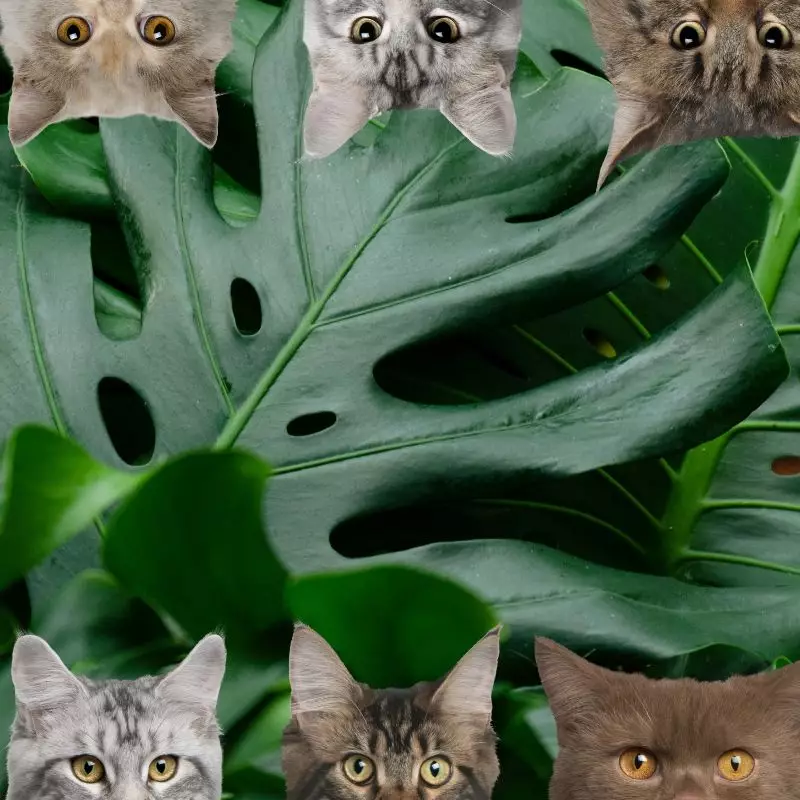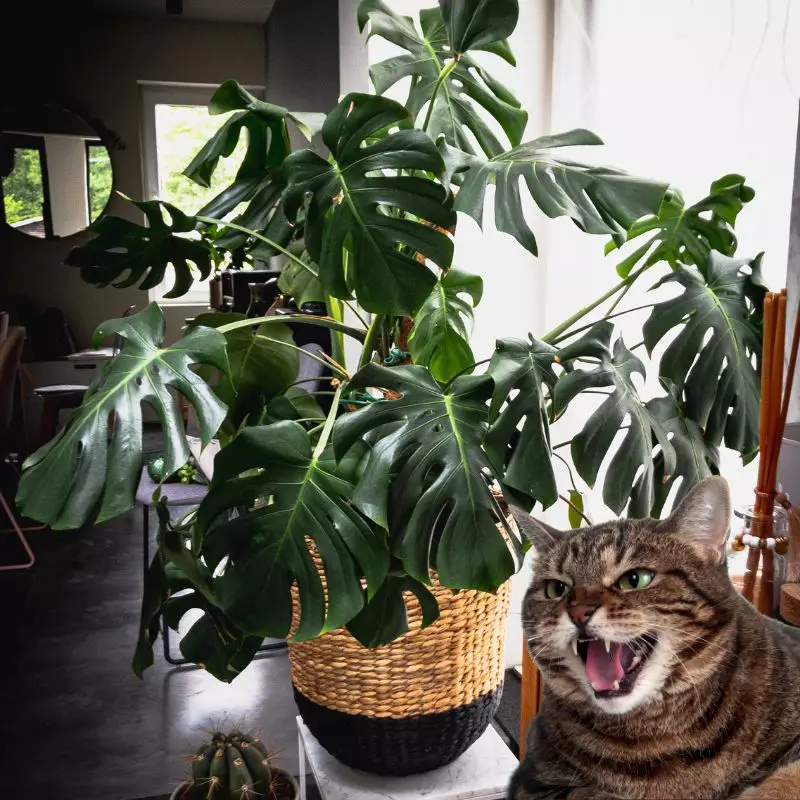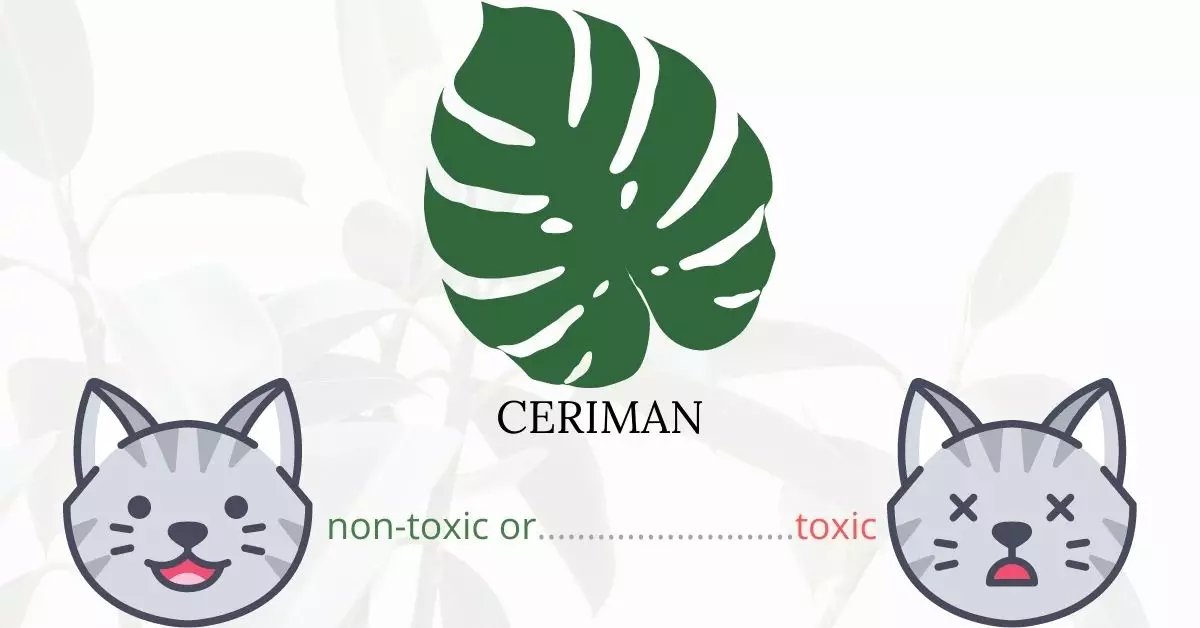Yes, Ceriman, also known as Monstera Deliciosa or by other common names like Cutleaf Philodendron, Hurricane Plant, Swiss Cheese Plant, and Mexican Breadfruit, is toxic to cats. This popular houseplant contains insoluble calcium oxalate crystals, known as raphides, which can cause severe oral irritation, throat inflammation, and potential kidney damage when ingested by cats. In severe cases, this could lead to suffocation or even death.
This article is a collaborative effort with a team of experienced DVMs (doctors of veterinary medicine). Their insights have been invaluable in ensuring the accuracy and timeliness of the information we provide about the risks associated with various plants, including Ceriman, and their effects on cats. Additionally, we have cross-referenced our findings with high-authority websites such as the ASPCA and PetMD to ensure comprehensive and accurate coverage on the topic.
Clinical Signs of Ceriman or Monstera Deliciosa Poisoning in Cats

Ceriman or Monstera Deliciosa contains insoluble calcium oxalate crystals called raphides. When a cat comes into contact with, or consumes parts of this plant, it may exhibit various clinical signs due to the effects of these crystals:
- Swallowing Problems: The sharp calcium oxalate crystals can lead to irritation and inflammation within the throat, making it difficult for the cat to swallow.
- Mouth Foaming: This is often a direct response to the immediate discomfort and irritation caused by the plant’s toxins.
- Hoarseness: The irritation and potential inflammation of the vocal cords from contact with the raphides can result in a hoarse meow or vocal sounds from the cat.
- Mouth, Tongue, and Lips Burning and Irritation: Direct contact with the raphides induces an intense burning and irritative sensation, predominantly in the oral region.
- Excessive Drooling: The cat’s natural response to oral discomfort or something undesirable in its mouth is to produce more saliva in an attempt to flush out the irritant.
- Low Energy: The cat may become lethargic as a result of the distress and discomfort, potentially compounded by the body’s effort to metabolize and combat the toxins.
- Inflammation of the Mouth: The mouth tissues can become red, swollen, and sore due to the continuous irritation caused by the calcium oxalate crystals.
- Vomiting: As the body tries to expel the ingested toxins, the cat may vomit. This is a protective mechanism to prevent further absorption of the toxins into the bloodstream.
If you observe any of these signs in your cat after potential contact with a Ceriman or Monstera Deliciosa plant, it’s essential to consult a veterinarian immediately.
First Aid and Treatment of Ceriman or Monstera Deliciosa Poisoning in Cats

To avoid kidney failure, immediate veterinary care is necessary. The veterinarian may use medication to induce vomiting or give the cat an activated charcoal solution to bind with the toxic plant chemical and then pass it through the body in fecal matter. IV fluids may be also administered to flush out the toxin residues in your cat’s bloodstream and to also aid in rehydration. For throat irritation, the vet may administer Kapectolin to coat the lining of the throat and stomach.
Recovery from Ceriman or Monstera Deliciosa Poisoning in Cats

The recovery of felines depends on the extent of ceriman poisoning. In most cases, cats fully recover as long as they received prompt and proper veterinary treatment. If the condition already led to kidney failure, recovery may take a longer time.
Prevention of Ceriman or Monstera Deliciosa Poisoning in Cats
While ceriman or monstera plants are very popular indoor plants and looks perfect for your home, it is advisable to avoid these plants if you are living with a cat. Limit your cat’s outdoor activities and keep them occupied indoors to prevent exposure to ceriman or other toxic plants around your neighborhood.
If you love plants but have cats at home, check out these lists:





